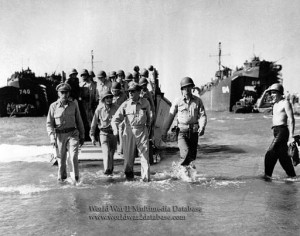I rushed in the door and threw my purse and keys on the couch. I opened the fridge and started piling onions, chicken and vegetables on the kitchen counter.
My husband came in to chat as we always do at the end of the work day, but my mind wasn’t in the conversation. My head was thinking about what I still had to do, what I had to do the next day and if there was any way I could get chicken to bake faster than chemistry allowed.
I think most people have a transition time between the office and home. Since I have a long commute, I use that time to call my mom or listen to a book on CD.
I try not to take my irritation out on other drivers because they didn’t do anything to deserve having an aggravated woman blow her horn at them for a small infraction.
Many days, though, I find myself riding home in silence with the windows down, trying to de-stress before I get home.
But those techniques didn’t work this afternoon, and I could practically feel my stress meter registering in the red zone. Sensing I wasn’t in the talking mood, my husband went outside for a few minutes and then stuck his head in the back door.
He said I should get my camera and come outside. The sun would be setting soon, and he thought it would be a pretty sight.
One more thing, I thought to myself, as I lowered the heat on the chicken and threw the cutting board into the sink. I found my camera bag underneath a pile of unread magazines and newspapers and yanked it out of the bag.
I walked outside, camera in one hand and looked at the sky. Clouds and blue were still visible, and I wasn’t happy that he’d called me outside to see a sunset that wasn’t even happening yet.
“Have a seat and wait for the sunset,” he suggested.
I plopped down on the chair, camera on my lap, my fingers drumming on the chair’s arm rest. I had a thousand things to do and here I was, wasting time waiting for the sun to set, a sight I’ve seen hundreds of times in the past.
But watching the sky slowly start to turn from light pink to a darker pink, I could feel myself relaxing a little bit. I leaned back in the chair and looked around our back yard. There were still flowers blooming, hardy hold outs of the summer season.
I hadn’t noticed how tall the new trees we planted in the yard had grown. There were little white flowers in the lawn, blooms I hadn’t noticed before.
There were songbirds chirping somewhere close, and the wind rustled the leaves in the bush near my chair. That caused me to notice a small lizard on a thin branch, he hoping I wouldn’t notice him, me hoping he’d stay put and not jump on my chair.
And then, almost before I knew it, the sky had turned from light pink to deep crimson, and I raised my camera and snapped away. With each click of the shutter button, I could feel the stress diminishing, just as the light in the sky was fading.
Sheepishly, I knew I needed to appreciate the quietly gorgeous way Mother Nature was closing her eyes, telling us the day was over and the sun would return in the morning.
That sunrise, the perfect bookend to a sunrise, brought with it the promise that every day is a chance to start over.
This column was originally published in The Fort Bend Herald.
